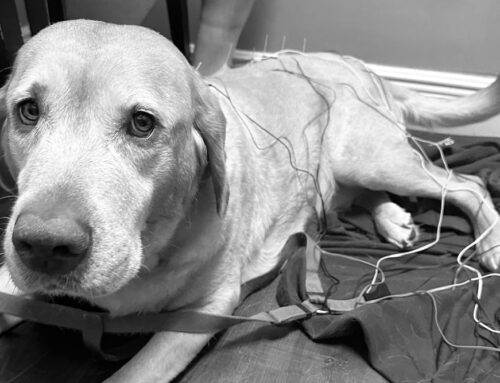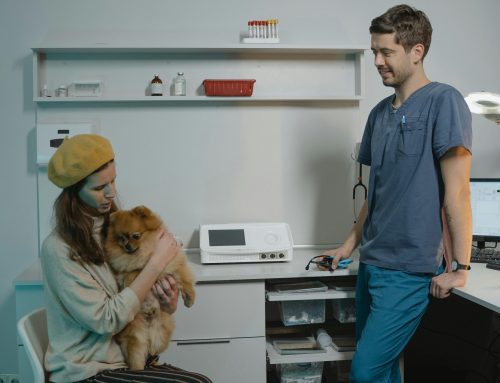Understanding the Florida Flea & Tick Challenge
Living in Florida means dealing with pests year-round. Unlike northern states, where winter provides a reprieve from fleas and ticks, our warm, humid climate creates the perfect breeding ground for these troublesome parasites 365 days a year.
Florida pets face particular risks because:
- Fleas thrive in our humid environment and can reproduce rapidly
- Multiple tick species are abundant, including deer ticks and brown dog ticks
- Parasites remain active through mild winters
- Dense vegetation in many areas provides ideal hiding spots
- Wildlife hosts (raccoons, deer, etc.) frequently enter residential areas
This persistent threat means protection isn’t just a seasonal concern; it’s a year-round necessity for keeping your pet comfortable and healthy.
Types of Flea & Tick Prevention Products
Let’s explore the main prevention options available for your Florida furry friend:
Topical Treatments
These liquid medications are applied directly to your pet’s skin, typically between the shoulder blades. They spread through the natural oils on your pet’s body, killing fleas and ticks on contact or when they bite.
Oral Medications
Available by prescription, these monthly chewable tablets kill fleas and sometimes ticks when the parasites ingest your pet’s blood. Many Florida veterinarians recommend these for their effectiveness in our challenging environment.
Flea Collars
Modern flea collars release active ingredients that spread across your pet’s skin or get absorbed into their fatty layer. Some provide up to 8 months of protection, which can be convenient for busy pet parents.
Sprays and Powders
These direct application products can provide temporary protection but typically need frequent reapplication, sometimes challenging in Florida’s rainy climate.
Natural Alternatives
Some pet parents prefer essential oil-based products or other natural remedies. While these may have some repellent properties, they typically don’t match the effectiveness of conventional treatments in Florida’s intense pest environment. There are also several essential oils that can be toxic to cats and dogs, so please be cautious before applying any topical products directly to your pet’s coat.
Factors to Consider When Choosing Prevention for Florida Pets
Your Pet’s Lifestyle
Consider how your pet spends their time:
- Does your dog frequently visit dog parks or hiking trails?
- Is your cat indoor-only, or does it explore outside?
- Do you take your pet to the beach or lake?
Pets with more outdoor exposure need more robust protection in our parasite-rich environment. However, even our indoor four-legged family members are at risk of picking up these pesky parasites. For example, the brown dog tick lives mostly indoors.
Age and Health Status
Very young or pets with health conditions may require specific formulations. Some products have minimum age or weight requirements that must be considered for safety.
Species-Specific Needs
For Dogs: Many products work for both fleas and ticks, which is important for Florida dogs who often encounter both parasites.
For Cats: Be extremely careful: many dog products contain permethrin, which can be fatal to cats. Always use cat-specific products for your feline friends.
Water Exposure
If your dog loves swimming in Florida’s abundant water features, consider water-resistant topical treatments or oral medications that won’t wash away during a dip in the pool, lake, or Gulf.
Additionally, if your pet requires frequent bathing, like pets with allergies or certain skin conditions, please keep in mind that this may strip the oils from the skin and therefore wash off any topical flea or tick product that is applied.
Ease of Application
Be honest about what works for your household. Even the most effective treatment won’t help if you struggle to apply it consistently.
Florida-Specific Considerations
Year-Round Protection
Unlike northern states, Florida pets need protection all 12 months of the year. Skip a month, and you’ll quickly find yourself battling an infestation.
Increased Potency Needs
The sheer number of fleas in Florida sometimes means you need more potent protection than what might work elsewhere. Products that combine multiple active ingredients often perform better here.
Resistance Concerns
Because we use flea products constantly in Florida, some flea populations have developed resistance to certain ingredients. Your veterinarian can advise on what’s working effectively in your specific area. This is a questionable concept in veterinary medicine. It has been popularized as a reason to move away from certain topical formulations, but it may not carry much weight when actually tested in a lab setting.
Additional Parasite Protection
Consider products that also repel mosquitoes (which transmit heartworm) and protect against other Florida parasites, such as hookworms, roundworms, and whipworms, for comprehensive coverage.
Signs Your Current Prevention Isn’t Working
If you notice:
- Your pet is scratching excessively
- Visible fleas or “flea dirt” (black specks) in their fur
- Red, irritated skin or hot spots
- Hair loss, especially around the tail base or lower back
It’s time to reassess your prevention strategy with help from your vet.
FAQs About Flea & Tick Prevention for Florida Pets
Q: How often should I apply flea and tick prevention in Florida?
A: Follow product instructions precisely—typically monthly for most topical treatments and oral medications. Some newer collars last up to 8 months. Given Florida’s year-round pest pressure, continuous protection without gaps is essential.
Q: Can I use the same flea prevention for my dog and cat?
A: No. Many dog products contain permethrin, which is toxic to cats. Always use species-specific products and never apply dog treatments to cats, even in small amounts.
Q: Do I still need flea prevention if my pet stays indoors most of the time?
A: Absolutely! In Florida, fleas can hitch a ride on your clothes or shoes, enter your home, and find your pet. Even indoor-only pets need protection in our pest-heavy environment. Once inside, a female flea makes quick work of reproducing, laying up to 50 eggs per day.
Q: Are natural remedies effective against Florida’s robust flea population?
A: While natural remedies may offer some protection, they typically don’t provide the level of control needed for Florida’s intense flea pressure. If you prefer natural methods, you’ll likely need to use them more frequently and combine approaches for effectiveness.
Q: My pet is still getting fleas despite using prevention. What’s happening?
A: Florida fleas can develop resistance to certain ingredients. Additionally, you may need to simultaneously treat your home and yard to break the flea life cycle. Consult your veterinarian about switching to a different active ingredient or combination product.
Conclusion
Choosing the right flea and tick prevention for your Florida pet requires understanding our unique environmental challenges. The perfect solution balances effectiveness against our robust parasite populations with safety for your individual pet’s needs.
Remember that what works for your neighbor’s pet might not be ideal for yours, and what worked last year might need adjustment as flea populations and your pet’s needs change. Regular consultations with your veterinarian will help ensure you’re providing optimal protection.
By maintaining year-round prevention with products suited to Florida’s challenges, you’re giving your furry family member the gift of comfort and protecting them from diseases carried by these troublesome parasites. Your diligence means more happy, scratch-free days enjoying all the outdoor adventures Florida has to offer with your beloved companion.
If your pet needs flea and tick prevention and you live in the Keystone, Odessa, Westchase, or surrounding areas of Tampa, the compassionate team at West Park Animal Hospital is here to support both you and your pet through every step of the process. Call us at (813) 749-6863 or request an appointment online to discuss your pet’s needs.







Leave A Comment